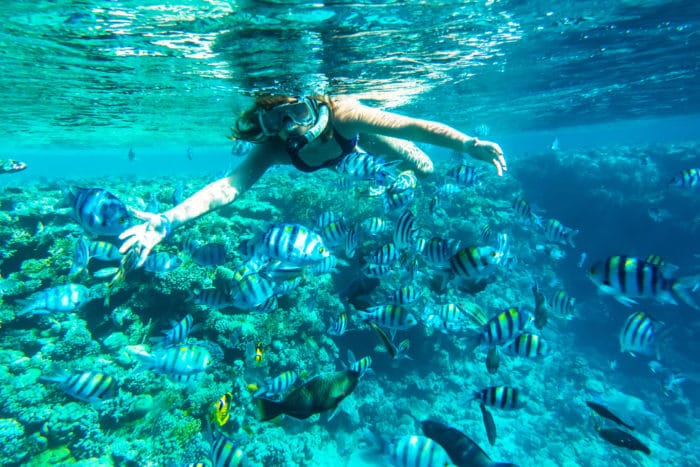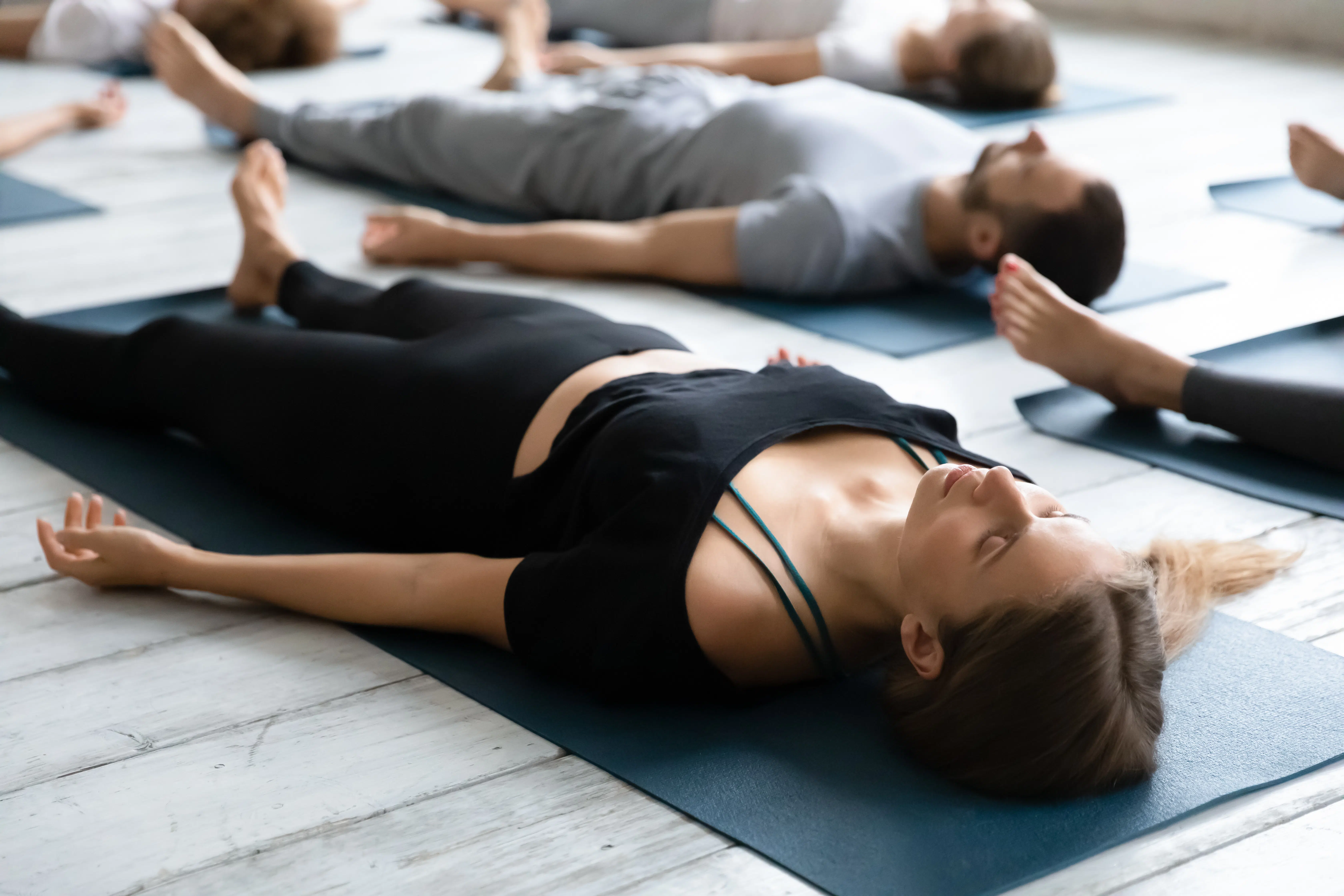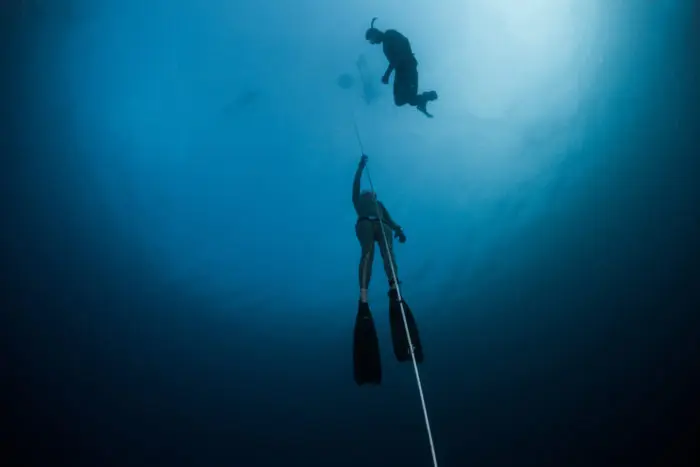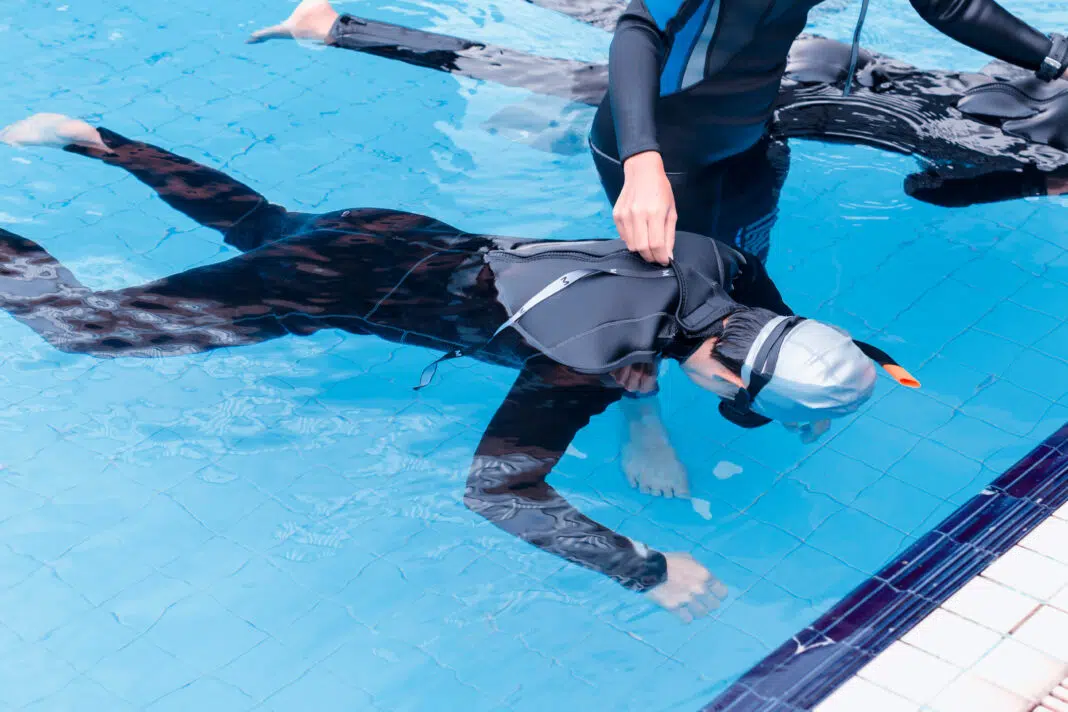Are you curious about freediving? Or have you already signed up for a certified freediving course and are anxiously awaiting the first day, wondering how you can prepare? Beginner freediving courses are a gentle introduction to the sport, and while you should not practice any in-water skills without the presence of an instructor, there are some steps you can take beforehand to make the course go more smoothly.
Discover the secrets to making your first freediving course a success below!
Before the course
Practice your swimming

Most internationally-recognized freediving certification courses have swimming pre-requisites, such as swimming 200m (656ft) non-stop for a Molchanovs Wave 1 course. In addition, some agencies may give you the option of swimming a longer distance with fins, a snorkel, and a mask.
But this requirement is not something you should just aim to pass and stop there. Being comfortable in the water and feeling relaxed is the most crucial part of freediving. Before you start a course, go swim laps at a local pool, practice your snorkeling skills in the open water, or do anything you can to feel entirely at ease and confident in the water. Do NOT practice diving or breath-holding on your own – when we say swimming, we mean just swimming!
Practice Frenzel
Equalization problems can be a serious barrier for future freedivers in their first course. Some people can learn the Frenzel technique (the one you need for freediving) instantly, while others will take a couple of days or weeks of practice to get correct. Do everything you can to increase your success rate by practicing and mastering Frenzel beforehand!
Adam Stern, also known as ‘Adam Freediver’ on YouTube, has an excellent video (see above) on learning Frenzel and a follow-up video if you have further issues. You can also check out some essential exercises for a better Frenzel. Practice and consistency are essential; be patient with yourself and continue working on it – you will get it eventually!
Study the materials beforehand
If your instructor has sent you the materials beforehand, make sure to have a proper read-through of them before the course. Even if you have an in-person or online theory session, knowing the materials ahead of time will allow you to spend extra time with your instructor on concepts or skills that are giving you trouble. You are investing in yourself with a brand-new skill, so make the most out of it!
Practice relaxation breathing
Your course manual should have plenty of exercises and ways to achieve a relaxed state before diving. There are many ways of achieving this (check out our suggested relaxation techniques for freedivers), and you may find that only one of them works out for you or even run into some trouble clearing your mind. That’s okay – the whole point of the course is to experiment with different techniques and find what works for you! Practice anywhere and everywhere, and use these techniques to help you relieve stress in your daily life.
Practice dry breath-holds
Your course materials should give you some guidance on how to take your final breath for a freedive. Practice these at home while laying in your bed or sitting on a flat surface (and remember to breathe through your mouth – not your nose!). You can catch a glimpse of what to expect during your course; just make sure never to practice in the water before you take the course – only on land!
Work on your flexibility

Having some degree of flexibility in sports is never a bad thing, which is why you can already prepare your body with some stretches or yoga for freediving. However, remember that it is best to check with your doctor before starting any new exercise routines, and slow progression with consistent practice is key!
Check the medical statement
Proper freediving certification courses will require that you fill out a medical questionnaire/statement before you even get into the water. Check the medical statement beforehand to ensure that you do not have any previous medical issues requiring you to get a doctor’s consent before starting your course!
Mustache maintenance
For our bearded freedivers or those with a mustache, you may find that masks do not seal properly on your upper lip. No worries – trimming your mustache shorter just underneath your nose or applying some petroleum jelly before diving! Or worst-case scenario – shave entirely and show the world your naked face!
Pack the important items
Apart from the basics, you would need for freediving, such as sunscreen, swimsuit, towel, and water bottle, consider some extras you might need to make freediving as comfortable as possible. For example, freedivers with long hair should bring extra hair ties. Those particularly susceptible to sunburn can wear gloves (even thin work gloves) to give you additional protection for your hands. Thin ankle-length socks can also help protect your feet and ankles. Freedivers who need glasses can consider bringing daily contact lenses in case of loss in the water and then looking for a prescription mask after the course is completed.
Also, consider if you are more prone to getting seasick! Getting yourself some seasick pills (a.k.a. anti-nausea or motion sickness pills) is an excellent idea to avoid feeling sick on the buoy. Be sure to check for non-drowsy medication or ask your doctor what is right for you.
During the course

Avoid drinking caffeine/alcohol and eating heavy foods
It is heavily recommended to avoid drinking alcohol the night (and day!) before diving, as freediving is very physical, and you’ll need a clear head during the course. Coffee drinkers should also consider not drinking any on diving days since caffeine increases your heart rate (the opposite of what we want for freediving)! You should also avoid heavy foods that do not sit well in your stomach and consider avoiding dairy products if you are lactose intolerant or sugary products that are dehydrating and result in thicker mucus production.
Get a good night’s sleep
Being well-rested is essential for freediving, as it is a physical activity and relaxation is of the utmost importance! Therefore, instead of going out for after-dinner drinks, relax in bed (or practice your equalization or relaxation skills) and get extra rest for the next day’s diving activities.
Have fun!
Make sure to, most importantly, have fun during your course! Take safety seriously and listen closely to your instructor, but give yourself a break if you feel like you are learning at a slower pace than others. You are attempting something extraordinary, and everyone absorbs information and learns skills at different speeds. So don’t be too hard on yourself and remember that no one is expected to be perfect at something the first time they try it – all you need is practice!
Good luck and safe diving!

